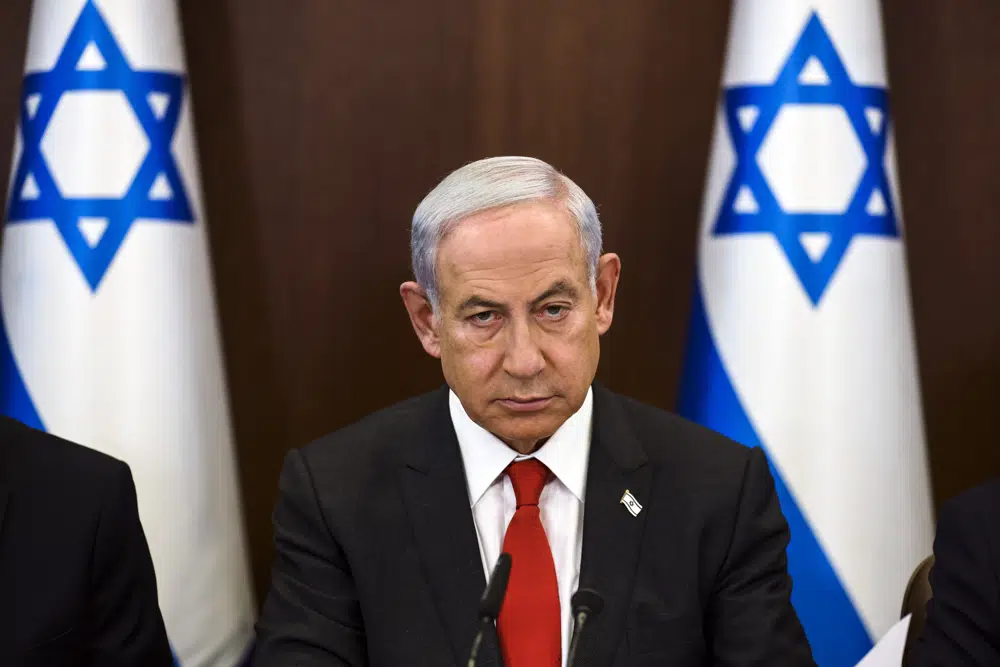In what will be the first stop of a three-day tour that will also see him visit Qatar and the United Arab Emirates, US President, Donald Trump is due to arrive in Saudi Arabia.
The White House said that Trump was making a “historic return to the Middle East”, the first official state visit of his second presidency, where he will concentrate on “strengthening ties.”
Trump is expected to focus on securing increased investment in the US from the three wealthy Gulf states during his visit, while also tackling thorny diplomatic issues, including a ceasefire in Gaza and stalled normalisation talks between Saudi Arabia and Israel.
Trump isn’t flying to these Gulf states as a peacemaker, rather, he’s arriving as a dealmaker, chasing investments and influence.
Amid a bloody war in Gaza, a volatile Iran, and a region more fragmented than unified, Trump’s itinerary reads more like a list of top global investors than a path to peace. He seeks to haul in investments.
Crises in the region, from the war in Gaza to Iran’s nuclear programme, are sure to loom over Trump’s trip. Nonetheless, they are unlikely to be resolved.
Saudi Arabia was also the first stop during Trump’s first term, breaking a tradition of new US Presidents starting state visits with the United Kingdom, Canada or Mexico.
Saudi Crown Prince Mohammed bin Salman al-Saud is scheduled to greet the US President on arrival at King Khalid International Airport in Riyadh.
In Saudi Arabia, Trump is hoping to secure a $1 trillion investment from Saudi Crown Prince Mohammed bin Salman in US industries, upping the crown prince’s earlier investment pledge of $600bn.
During the visit, Saudi Arabia is expected to announce more than $100bn in purchases of US arms, including missiles, radar systems and transport aircraft.
Talks may also focus on reviving a scaled-down US-Saudi Arabia defence pact.
Ahead of Trump’s visit, the US approved the sale of $1.4bn worth of weapons and equipment to the UAE.
The proposed sale includes the transfer of six CH-47F Block II Chinook helicopters and various military equipment, including missile warning, navigation and communications systems.
The Defense Security Cooperation Agency said in a statement, “This proposed sale will support the foreign policy and national security of the United States by helping to improve the security of an important regional partner.”
“The United Arab Emirates is a vital U.S. partner for political stability and economic progress in the Middle East. The proposed sale will improve the United Arab Emirates’ capability to meet current and future threats by extending its range of flight operations.
“The UAE will use these assets in search and rescue, disaster relief, humanitarian support, and counterterrorism operations.”
US Defense Security Cooperation Agency
The US defence agency added that the sale would not alter the military balance in the region or negatively affect US defence readiness.
Israel Sidelined

Meanwhile, Trump will not be visiting Washington’s key ally, Israel, during his Middle East tour, a decision that has raised concerns in some circles about his commitment to the US-Israeli alliance.
Asked by reporters about the US apparently sidelining Israel as Trump embarks on a visit to the Middle East without a stop in Israel, Israeli Ambassador to UN Danny Danon remarked that while the two countries remain strong, longtime allies, there have been recent instances where the two countries’ interests have not been “aligned.”
The remarks were in response to an apparent rift between Trump and Israeli leader Benjamin Netanyahu, who has been increasingly bypassed in recent weeks as the US has proposed or brokered deals with several regional players, including Houthi rebels in Yemen and Iran, without consulting with Israel. “We are partners and allies, but we are two independent countries,” Danon was reported as saying.
He said that while it is “legitimate for the US to do what they think is good for the US”, it is also “legitimate for Israel to take action on things that are necessary to protect Israel.”
READ ALSO: Investor Confidence Soars as Stock Market Transactions Jump 587% in April 2025




















